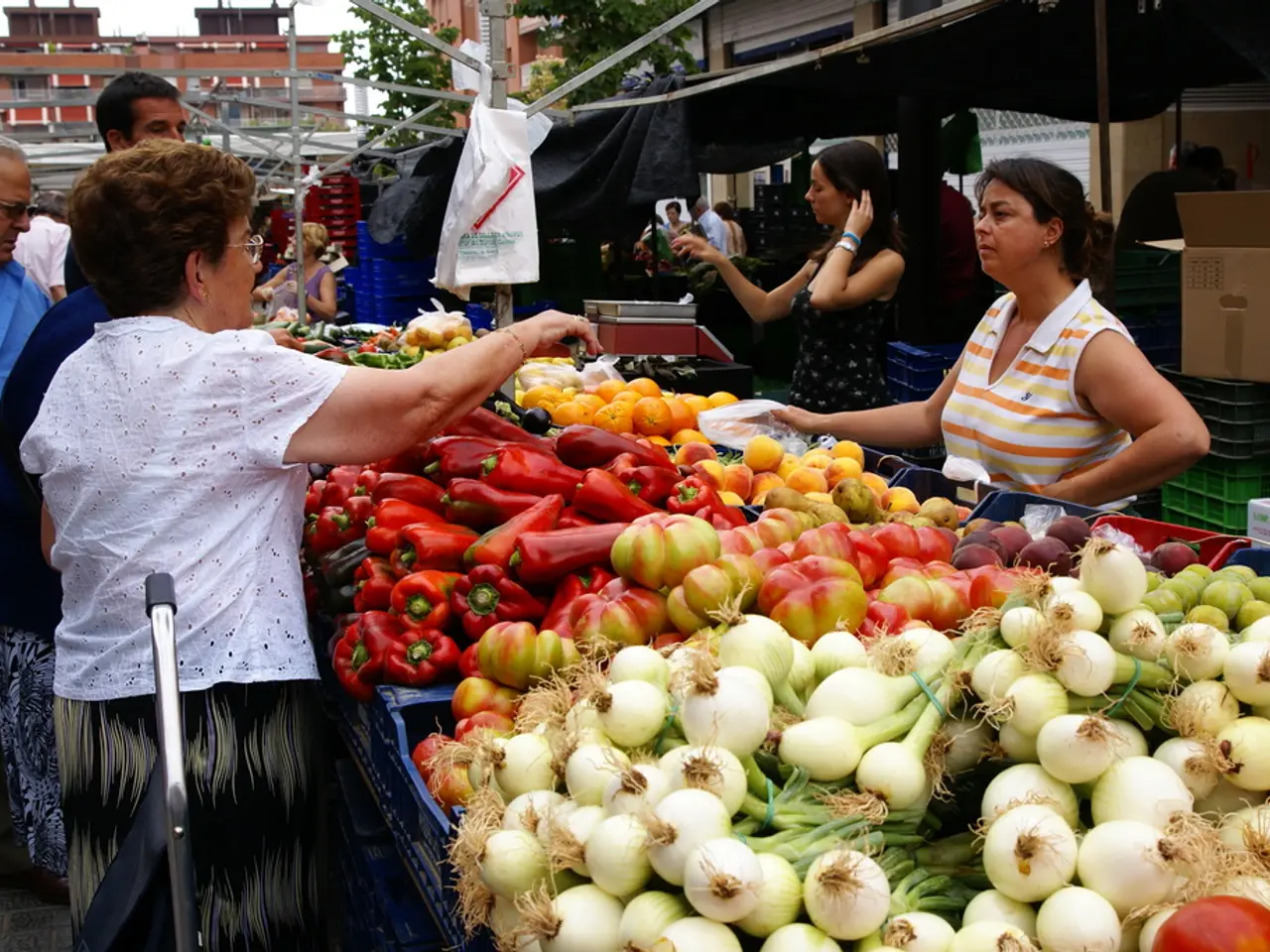Collision looms as discussions commence regarding an agreement to scale back plastic waste devastation, with David taking on Goliath roles in this scenario.
The world is at a critical juncture as negotiations for a legally binding global treaty to combat plastic pollution are underway in Geneva. The resumed fifth session of the Intergovernmental Negotiating Committee (INC-5.2), running from August 5 to 14, 2025, seeks to finalize an international instrument addressing the full lifecycle of plastics, from design and production to waste management and disposal [1][2][3].
Despite significant progress in the previous session, a final agreement was not reached. This round of discussions focuses on over 30 draft articles, covering topics such as plastic circularity, sustainable production, chemicals of concern, financing, national responsibilities, and timelines [1][3][4]. Member states and stakeholders, including scientists, activists, industry representatives, and diplomats, are intensely negotiating details to enable a systemic transformation towards a circular economy [3][4][5].
However, a significant challenge lies in bridging disagreements over financing, responsibility, chemical safety, production standards, and enforcement timelines [4]. The battle between scientific consensus and industry interests remains a significant dynamic affecting the pace and scope of the global treaty. Scientists advocate for systemic transformation grounded in evidence to protect health and ecosystems, while the plastics industry seeks to shape terms influencing regulation and economic impact [4][5].
Professor Richard Thompson, who first raised concerns about microplastics in the oceans, has warned of a "David vs Goliath" battle during United Nations talks to reduce plastic pollution. Thompson, a founding member of the Scientists' Coalition for an Effective Plastics Treaty, expressed concern about coercion and pressure being put on delegates by the plastics industry [6].
Meanwhile, in the UK, approximately 700,000 tonnes of textile waste are produced annually, with almost all going to landfill or incineration. However, innovative solutions are emerging. For instance, Project Plan B, in collaboration with school uniform maker David Luke, has created a 100% recyclable school uniform blazer [7]. Additionally, Project Plan B is working with The Salvation Army to recycle polyester textiles into plastic pellets for making new clothes.
The European Union and a coalition of about 70 countries are pushing for an ambitious agreement aiming to end plastic pollution by 2040, emphasizing the need for effective policies benefiting both people and the planet [1]. The UK and more than 70 other nations are part of a "High Ambition Coalition" that wants the production and consumption of plastic reduced to sustainable levels [8].
As the negotiations continue, it is crucial to remember that plastic pollution is a global problem that requires a global agreement. The United Nations underscores the need for action, stating that while some countries are taking steps, the problem requires a unified, binding treaty to ensure a cleaner, healthier future for all [9].
References:
- BBC News. (2025, August 5). Global plastic treaty talks to start in Geneva. Retrieved from https://www.bbc.co.uk/news/science-environment-56608250
- United Nations. (2025). Intergovernmental Negotiating Committee on Mercury (INC-5.2). Retrieved from https://www.unep.org/mercury/inc52
- The Guardian. (2025, August 6). Plastic pollution: global treaty talks resume in bid to tackle crisis. Retrieved from https://www.theguardian.com/environment/2025/aug/06/plastic-pollution-global-treaty-talks-resume-in-bid-to-tackle-crisis
- The New York Times. (2025, August 7). Plastic Pollution Treaty Talks Face Challenges in Geneva. Retrieved from https://www.nytimes.com/2025/08/07/science/plastic-pollution-treaty-geneva.html
- CNN. (2025, August 8). Plastic industry and scientists clash at UN negotiations over pollution treaty. Retrieved from https://www.cnn.com/2025/08/08/world/plastic-pollution-treaty-un-negotiations-scn/index.html
- The Independent. (2025, August 9). Plastic pollution: Scientists warn of 'David vs Goliath' battle with industry during UN talks. Retrieved from https://www.independent.co.uk/environment/plastic-pollution-un-negotiations-david-vs-goliath-b2178649.html
- BBC News. (2025, August 10). Recyclable school uniform blazer created to combat plastic waste. Retrieved from https://www.bbc.co.uk/news/education-56624918
- The Telegraph. (2025, August 11). UK and more than 70 nations push for ambitious plastic reduction agreement. Retrieved from https://www.telegraph.co.uk/science/2025/08/11/uk-more-than-70-nations-push-ambitious-plastic-reduction-agree/
- United Nations. (2025). Plastic Pollution. Retrieved from https://www.un.org/sustainabledevelopment/blog/2025/08/plastic-pollution/
- The battle between scientific consensus and industry interests in the negotiations for a global treaty to combat plastic pollution echoes similar conflicts in other areas, such as climate change and environmental science.
- As the world grapples with the issue of plastic pollution, it is interesting to note that the same level of intensity, albeit in a different context, is seen in debates over health-and-wellness issues, like fitness-and-exercise standards and sports-betting regulations.
- Misaligned interests are not unique to plastic pollution management but also arise in areas like sports, where environmental concerns, like choosing eco-friendly stadium materials, sometimes clash with traditional practices.
- With the growing awareness of the impact of human activities on the environment, conflicts in arenas such as plastic pollution, climate change, or sports may soon extend to more unforeseen areas, like the use of biodegradable materials in sports equipment or the adoption of green technologies in healthcare and wellness industries.




